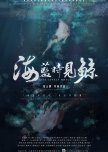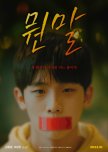
Drama Special Season 15: The History of Us
1 people found this review helpful
Rewrite history and historical truth
The trick of rewriting history and leaving what is not appropriate in the landfill is old: the United States lost the war in Vietnam, but years later it had its 'Rambo', capable of single-handedly winning another vengeful invasion and thus giving comfort to the nostalgic.Another example of rewriting history was pouring rivers of ink in the American newspapers of the time to blame Cuba and Spain for the blowing up of the North American battleship Maine, on February 15, 1898, with the aim of suing and pressuring the North American government to that he decided to intervene militarily in Cuba and rob the Cubans of their independence and sovereignty.
In fact, the Maine had arrived at the Havana port on January 25 of that year, with the excuse of making a "friendly visit", although, given the tension that existed between the United States and Spain, it was evident that the presence of the ship It was nothing more than one more in the chain of pressures that the North American government had been exerting on the Spanish government in what clearly constituted preparation for intervention, with annexationist and expansionist objectives, in the war that the Cubans were waging against the regime Hispanic colonial.
Let us also not forget how Western historians, especially German, British and American, began to rewrite history to detract from the Red Army and the Soviet Union in the defeat of fascism, and overvalue the intervention of the Western allies, which, although important, was not transcendental for the final victory against Hitler's Germany.
In truth, this war was won from fascism thanks, mostly, to the military and human effort of the U.S.S.R. and its people, who put twenty-eight million victims in the balance of death. However, this objective data is based, among many other reasons, on the fact that more than 70% of Nazi losses occurred on the Eastern Front and that it was the Soviet army that brought the German machine to its knees.
When the Allies landed in Normandy, back in June 1944, the Soviets were already advancing unstoppably towards the heart of the German Reich after defeating the Germans in the Battles of Moscow, Stalingrad and the Kursk Arch, decisive in ensuring a radical turn in the evolution of World War II. Even without Western intervention, Berlin would have fallen anyway and the Soviets would have even liberated Paris or Rome.
In the effort to manipulate history, Western historians forget that Winston Churchill himself, who at that time was the Prime Minister of Great Britain, wrote that "it was precisely the Russian Red Army that took the guts out of the war machine." Hitlerian", or the statement of Dwight Eisenhower, Commander in Chief of North American troops in Europe and future President of the United States, who was forced to publicly declare that "the great deeds of the Soviet Army during the war against Germany They aroused the admiration of the whole world.
I think about the above while watching 'Special: Drama Special Season 15: The Officer Discusses', written by Sudocrean Im Eui Jung ('Love According to Law', 2022).
Based on real events, this excellent work of the historical, dramatic and family genre, tells us, in terms of a relationship of friendship, murders and palace intrigues, how the Crown Prince Yi San (Nam Da Reum), summons the historians of Joseon to eliminate from the annals collected in the "Diary of the Royal Secretariat" the events related to the death of his father, Crown Prince Sado, who was murdered by his own father, King Yeongjo (played by actor Jo Han Chul), who was the twenty-first king of the Korean Joseon Dynasty (reigned October 16, 1724 – April 22, 1776), and by Lady Hyegyeong.
Aware that history can be manipulated if one has the means and capabilities to do so and, above all, if one who writes it in a real and objective manner is silenced, in order to ascend to the throne and consolidate his reign, Yi San, who reigned with the name of Jeongjo of Joseon (October 28, 1752 - August 18, 1800), and was the twenty-second ruler of the Joseon dynasty of Korea (1776-1800), he did not hesitate to assassinate anyone who opposed him in his efforts to try to clear the name of his father, who was considered incapable and weak.
History remembers that on the day Jeongjo finally assumed the throne, after the death of his grandfather, he looked at everyone present in the royal hall and said: "I am the son of the late Crown Prince Sado...". These words were considered a warning to those complicit in his father's death.
During the stage prior to his coronation, characterized by the chaos generated by the murder of his father on the orders of his own grandfather, King Yeongjo, who made the decision influenced by politicians opposed to the crown prince, Yi San demanded that the kingdom's historians Comply with your order.
However, Nam Yeo Gang (Tang Jun Sang), a young historian who in his childhood was sent to the Palace to keep the future king company, and with whom he develops a strong friendship since childhood, refuses to obey him and will seek to prevent the crown prince carry out his unhistorical plans.
When Yi San assures that by eliminating what happened from the annals he intends to refound the nation so that a new State can emerge, the historian Nam responds: "By erasing History, in what way will your Joseon be new?" This is the work of historians: in short, to study, describe, analyze, capture the past in writing, and protect the historical truth.
I would like to finally highlight the performances of the children Lee Chun Moo as Crown Prince Yi San [Young] and Choi Ye Chan as Nam Yeo Gang [Young].
Was this review helpful to you?

I see a thread of light at the end of the road
Through the intercultural relationship of Jie Cheng (Ivan), a well-behaved Taiwanese student, and Eric, a rebellious American exchange student, Californian filmmaker Steven Liang explores adolescence and acceptance in the society of Taiwan.Despite his mother's objections, Jie Cheng, who lives under constant pressure from her, meets Eric and together they embark on a journey along the most dangerous road in Taiwan.
Their trip is cut short when Eric reveals that he must return home after graduation, forcing Jie Cheng to confront his darkest demons.
Beautiful, sensitive and charming, 'Coming Home' has been screened at 30 international film festivals, following its world premiere at the Seattle International Film Festival.
Having been selected to participate in the Beijing Queer Film Festival, LA Asian Pacific Film Festival, Outfest, San Diego Asian Film Festival, Asian American International Film Festival (New York), Boston Asian American Film Festival, Boston LGBT Film Festival, CineSLAM: Vermont's LGBT Film Festival, Festival de Cannes: Short Film Corner, InDPanda Film Festival (Hong Kong), International Student Film Festival PÍSEK (Czech Republic), KASHISH: Mumbai International Queer Film Festival, Marais Film Festival (Paris, France), Peace & Love Film Festival (Örebro, Sweden), Pride of the Ocean Film Festival, Q! Film Festival: Indonesia's LGBT Film Festival, Seattle Lesbian & Gay Film Festival, Taiwan Queer Film Festival, Bilbao International LGTB Film & Performing Arts Festival (Spain), Kansai Queer Film Festival (Osaka, Japan) and Asians on Film Film Festival (Los Angeles) ), speaks clearly about this film co-produced by Taiwan and the United States.
The film made history as the first gay-themed project funded by the Taiwan Tourism Bureau and was distributed by Outplay Films.
Written by Timothy Chang and Steven Liang himself, the film stars Yu-Ting Hsu as Jie Cheng, Benjamin Turman as Eric and Bi Lan Li as the mother.
Interested in telling stories about the resilience of those living on the margins, Steven Liang, an award-winning director and House Ballroom scene photographer, addresses themes of homosexuality and transsexuality, as demonstrated in 'The Extra Mile' (2013), A Better Life (2014), Afuera (2017), Emma and the Butt (2017), Falling for Angels (2017), and Transplant (2018), Coming of Age, among other productions.
Screened in New York as part of the 2015 Asian American International Film Festival, the film, written by Timothy Chang and Steven Liang himself, stars Yu-Ting Hsu as Jie Cheng, Benjamin Turman as Eric and Bi Lan Li as the mother .
The story is populated with thousands of small details, which enrich the look, and a grayer color that carries with it questions that the viewer must answer, if he can.
The song "I Need Your Love", performed by Grace, plays magnificently with the story, and creates a unique and fascinating atmosphere that allows the plot to perfectly connect with the viewer.
The story does not leave anyone who approaches it indifferent, and we all wait for the boys to have a happy ending, and the mother to finally accept her son's sexuality.
The photography and direction are commendable. The plot is beautiful, and although it may seem that all is lost, I see a thread of light at the end of the road.
Was this review helpful to you?

Club Friday Season 16: Domestic Incident
1 people found this review helpful
This review may contain spoilers
Miniseries to see with eyes and, above all, with a very open mind (Third review)
Establishing a new love bond goes beyond the good relationship or chemistry with the new partner. Children represent a challenge and new approaches, and there are borders that foster parents should not cross..., but what if love arises between the adolescent child and his or her stepfather or stepmother? Is it wrong for a mother's boyfriend to have consensual sexual relations with her son? What will happen when the secret is discovered? 'Club Friday Season 16: Domestic Incident', the Thai miniseries directed by Ma-Deaw Chookiat Sakveerakul, raises these and other questions.Written by Sorawit Muangkaew ('Slam Dance', 2017), Thanamas Dhalerngsuk ('Triage', 2022), Park Thamsarun Khusunthia ('Addicted Heroin', 2024), and Kay Trinnarich Nonghin ('A Secretly Love, 2024), and the same director, the four episodes of this melodrama, lasting about 45 minutes, explore complex and controversial topics such as the non-pedophile relationship between a woman's boyfriend and her son, one of legal age while the other is a teenager; the mother-son relationship and infidelity, with an LGBTQ+ twist.
With the message: "the person who makes you feel at your worst could be the one you love the most and trust the most", concludes the first episode of a miniseries that revolves around a single mother who maintains a very close bond with Guy , his only son, his closest companion.
Rin (Yuyee Alissa Intusmith - 'Chum Taang Kao Chum Thong', 1997), an enterprising and talented woman, unintentionally finds love in Mr. Gott (Lift Supoj Janjareonborn ('Jenny', 1996), an admirer who is interested in a business partnership with Guy's mother's company, a character played by Aon Kasama Khamtanit.
Gott seems to be a good man who tries to win the affection of both mother and her son, as is Rin's wish. However, while Rin and Gott begin a courtship, Gott and Guy cannot help but fall in love, while sharing games of soccer and other distractions between stepfather and stepson.
With an insatiable curiosity about the world, explore his sexuality and experience love, which he believes he has found in Kem, his friend and soccer teammate (Tae Chayapat Kongsub - 'Y-Destiny' (2021), the life of Guy, a teenager Quite typical, he will take a dangerous and abrupt turn when he starts sleeping with him mother's boyfriend.
With a plot adjusted for entertainment purposes only, with no intention of offending anyone, promoting immoral sexual values or creating a pessimistic disposition of a gender or group of people, 'Club Friday Season 16: Domestic Incident' addresses another complex and fully global debate such as incest, typified in numerous penal codes around the world with the "carnal act or other erotic sexual act with a descendant or ascendant, adoptive or adoptive, or with a brother or sister."
However, while in some countries there is debate about its decriminalization, other legal instruments do not classify incest as a crime, considering it as a moral and not a legal problem, considering it as part of individual freedom, the right to free development of personality. and personal autonomy, while they do consider a circumstance of punitive aggravation of the crimes of sexual assault and sexual abuse, violence or intimidation and without the consent of one of the parties, or if the consent of the minor was obtained through deception, seduction and corruption of minors, not present in this Thai audiovisual.
Director and screenwriter Ma-Deaw Chookiat Sakveerakul, known for directing 'The Passenger of Li', '13 Beloved', 'Dew the Movie' (2019), 'Triage' (2022), 'Manner of Death' (2021), Among other films and series, he once again demonstrates that he knows how to describe people adrift, fragile beings in permanent confusion who believe they know what they want and defend what they want.
While the marriage benefits both Gott and Rin, as they could apply for joint bank loans, while the merger of the two companies would serve to better position them in the global market, Gott and Guy will blur all the codes and one will abandon himself to the complex and contradictory desires of the other. However, Ma-Deaw never judges anyone and the telluric force of her direction embraces the complexities of sexual desire with immense tact and aplomb.
This is not a pedophile relationship. The adolescent boy has a say. He counts and decides. Ask, demand and get. Especially sex. A lot, all the time. Maybe too much, if that were possible. He is the one who starts flirting with his mother's boyfriend, testing, enjoying. He's smart and he's lost. With an absent father and a mother, although worried and loving, very busy with her business and rebuilding her love life. It doesn't have many references. To which we must add the disturbing power of a sexy man who has just entered her life, while suffering from a heartbreak.
The premise is interesting. Very entertaining and intelligent. Provocatively frivolous and playful. The beginning is good. An unprejudiced and uninhibited narrative.
I hope that what follows, once the situation is raised, is not a tiring and tedious loop, a repetitive and obvious drama, in which the focus is closing and almost everything is reduced to the sexual exploration of the boy and his boyfriend. mother, while both betray Rin.
Anyway, I would like 'Club Friday Season 16: Domestic Incident' to explore well the loss of innocence, the difficult and painful access to maturity, the mother-son relationship and the couple's relationship, and not remain as a The boy needs more affection and attention than his mother can offer him, so he believes it is possible to find them through sex, using his youthful body and physical attractiveness as currency, especially when it involves a man who could be his stepfather.
'Club Friday Season 16: Domestic Incident' explores well the loss of innocence, the difficult and painful access to maturity, the mother-son relationship and the relationship as a couple.
The miniseries is much more than a boy in full exploration of his sexuality with his stepfather, while both betray Rin. It is much more than the story of a young boy in need of more affection and attention than his mother can offer him, and who She believes it is possible to find them through sex, using her youthful body and attractive physique as currency, especially when it involves a man who soon becomes her stepfather.
It is not the first time that this issue appears on the screen. Films such as 'Soshite, baton wa watasareta' ('And So the Baton Is Passed' – 2021), by Japanese director Tetsu Maeda, the Liechtensteinian 'Eugénie' aka 'Eugenie de Sade' (1973), by Jesús Franco, 'Beau- père' (1981), by the Frenchman Bertrand Blier, 'Russkaya Lolita', (2002), by the Russian Armen Oganezov and script by the director himself and Vladimir Nabokov, the American 'The Diary of a Teenage Girl' (2015), by Marielle Heller , the Italian 'La seduzione' (1973), by Fernando Di Leo, among other films, have addressed a similar topic.
After playing Kluea in 'This Love Doesn't Have Long Beans' (2024), it is impressive how Aon Kasama Khamtanit plays him first leading role, in which her ease, self-confidence, honesty and heartfelt transmitting capacity, picked up on the fly, are evident. by the audience; plus the nuanced performances of Yuyee Alissa Intusmith and Lift Supoj Janjareonborn, actress and actor with more than three decades of artistic experience each.
'Club Friday Season 16: Domestic Incident' is daring, dazzling and different, more in touch with the awakening of a young man to his sexuality and the chaos that it provides, that power that gives a young body learning everything/expert in nothing who simply tries sex with his mother's boyfriend, as an experience of the life he is discovering.
The audiovisual combines narrative, visual appeal and high-quality acting, mainly through the protagonist trio, but with greater focus on the sexual relationship established between the teenager and his mother's husband. A couple that combines a teenager of precocious maturity and an adult who, with his striking traits of immaturity, narcissism and dependence, with an excessive penchant for keeping in touch with young people, among them his secretary, a much younger woman in love with her boss, but not reciprocated, seems to indicate having Peter Pan syndrome.
Acidic, stark and liberated. Direct, raw and open. On the positive side, its freshness, its setting, its characters and its shameless liberal bravery. Against them is their permissiveness and realistic licenses.
Without hesitation, the Thai filmmaker presents us with the thoughts and actions of the male couple in a brilliant, tenacious way, with lively, sweet and transgressive language, we see ourselves in their fears and desires, we explain those loose words, we are recipients of all that philosophy of the short life of the adolescent and that of the adult who has tried on other occasions to experiment with sex with men, precisely, with other young people, but has not been able to achieve it because he considers himself heterosexual, and yet, before Guy he gives in. He does not seek the carnal. He has fallen in love. Therein lies the intelligence of the script, in the way it presents its dilemmas, in its voices, in the direct connection of these two characters with the viewer.
The only thing I don't understand is the director's intention, already at the end, to place Gott having sex with other young people, after having rejected this type of proposals at the beginning, when he was already married and had a sexual relationship with Guy. In the end, he is a man in love with a boy who does not dare to publicly assume his sexuality.
This is a type of audiovisual that, although its creators do not judge or take sides at any time, and are only interested in showing realities that can exist within any family, in the epilogue they issue reflections to the audience. After the secret relationship between her son and her husband is discovered by Rim, it is up to the two male figures to choose, and given the love for her mother and the love for the man he loves, Guy chooses Gott, and the latter, between future of his company that would be assured of maintaining the relationship with Rin, and the love for Guy, Gott chooses Guy.
But since the program has to assume a position towards society, with the intention of giving a moral lesson that marriage is sacred, the miniseries loses its horizon, and that is exactly where it fails, since it places Gott having sex with other young people, despite having rejected proposals like these at the beginning. They position Gott, towards the end, as an evil man capable of betraying everything and everyone in his path, including himself, and as someone incapable of publicly assuming his sexuality, ending his romance with Guy, which will allow mother and son reestablish their fractured maternal-filial bond.
Great music, with a rhythmic rhythm, for a crazy story, fresh, vital and personal that goes beyond conventionalism and flourishes; happy family made up of mother and son, a mother who tries to rebuild her love life with a practically unknown man, a teenager with a broken heart, who loses control when he discovers the pleasure of flesh in contact with another human being; newly found pleasurable enjoyment that will focus your steps towards that evolution where emotions become confused and feelings interrupt a path not lacking in danger and drama.
In other words, 'Club Friday Season 16: Domestic Incident' shows what is not allowed with bravery of taste that does not offend, and perfectly captures that discovery of sexuality in a teenager and the dangers of maintaining a secret relationship with an older person, with a considerable age difference, who on top of this is his stepfather.
Ma-Deaw Chookiat Sakveerakul presents us with a bold, non-conformist and refreshing story that speaks with strength, clarity, directly to the screen and to a compulsive viewer who finds it difficult to welcome and follow this teenager and his avid world without being startled, silenced and fascinated by the naturalness and frankness of exposition that does not hide, that does not flee and that speaks emphatically of the mental mess of two heads, that of the adolescent and the adult, whose bodies go at a mile an hour requesting passage.
It surprises, alters and stuns, a marvel of narration exposed, shameless and insolent, that does not leave indifferent; Whether you understand it or not, whether you like it more or less, whether it shocks you or suggests it, it is clear that the miniseries has captured your thoughts while the frames roll; Get to know it, don't judge it, and remember what it is to feel absolute happiness followed by the most miserable misfortune, that ferris wheel without control or brake that decides without thinking about the consequences and that wants to devour the world even though it, sooner rather than later, devours it. to those involved in the plot, because no one will escape pain and suffering when the secret is revealed.
The best: the freshness of the script, the acting ability of its protagonists, and the courage to address a sensitive but real topic that can occur within any family, and is generally ignored in audiovisuals.
The worst: the betrayal of a mother, the infidelity to his girlfriend-wife, and the intimate relationship that it exposes, can bother a certain audience with a not so open mind.
Was this review helpful to you?

The theme of love is universal
"The theme of love is universal, regardless of gender orientation." This is how Adolfo Alix Jr., the director of 'Unlocked', the Filipino anthology filmed in 2020 with iPhone about homosexual relationships during the confinement caused by the pandemic in Manila, responded when answering how he came up with the idea of telling these stories.Scripted by the director himself and Jerome Zamora, each episode of the series, which at the time became the most viewed in the history of the LGBT+ streaming platform GagOOLala, addresses a different queer story, cast, and genre, but they all share the same context: how the Covid-19 pandemic has altered the already difficult lives of the LGBT+ community in the Philippines.
"During the early days of quarantine in Manila, I had LGBT+ friends who were trying to understand the 'new normal' while navigating the realities of the pandemic. So, I thought about developing stories where the pandemic can be a circumstance that prompts us to examine their relationships, like a kind of purge, whether it's physical distance or developing paranoia about the situation."
In the words of the Filipino director, people become more vulnerable to the stressors around them. In the circumstances caused by Covid-19, each individual was able to share more time with their loved ones and, locked in the confines of a limited space, they were able to unlock emotions and realities that put their relationships to the test, while at the same time they faced fear not only of contracting the virus, but also the feeling of uncertainty, often like their relationships.
In this way, the idea arose to create a series in which love would be the link that would connect the nine episodes of the anthology, since its characters reflect a variety of queer relationships that jump off the screen and resonate with viewers.
Family love, romantic love, long-distance love... Although the anthology uses a realistic and bittersweet tone, it shows the strength of human connections with our loved ones in difficult times. That is the main message that the series conveys.
It also reflects the atmosphere of uncertainty that prevailed during the pandemic. With lives disrupted and held hostage by quarantine, people became more vulnerable to the stressors around them, from limited mobility and work-related stress to the complex relationships they have with their partners, family or friends.
Knowing that stories like those reflected in the series are not only specific to Manila or the rest of the Philippines, Portico Media, the group behind GagaOOLala, gave the green light to the project.
With solid performances, in all the stories I liked the script, despite some holes. For example, in episode 4 I didn't understand what really happened to Mr. Greg's husband, whether he died or left home; while in 5, I couldn't understand how Ivan's mother knew what he did for a living and why put it out there that way, but overall it's a great series.
Given the limitations of filming during lockdown, some of the episodes, while fascinating and relatable, are rough around the edges, making them sting even more with thematic pertinence.
The anthology demonstrates that the LGBT+ community's journey is not all sunshine and rainbows. There are many experiences that remain locked in memories and experiences. 'Unlocked' opens our world to the trials and tribulations of a community, already repressed by society, and how they triumphantly overcome them.
The main conflict that the small four-person team led by Adolfo Alix Jr. faced was filming during the confinement. With safety as their top priority, they filmed all episodes using an iPhone, using familiar available locations, and working closely with the actors because they wanted them to be comfortable and safe.
The beautiful and emotional music by Mikoy Morales and Alex Diaz contribute to the recognition that while the stories are framed in the realities of the LGBTQ+ experience, the accessibility issues they address go beyond their niche market.
Each episode has the names of the characters as its title. The debut episode, 'Andrew & Brix', tells the story of a middle-class young man named Andrew (Markki Stroem) who, heartbroken due to a recent breakup, invites Brix (Mike Liwag) on the first night of quarantine, a rent boy she met online, to have a sex encounter. As the night progresses, their conversations open up many possibilities: healing and connection, lust and love… and probably moving on. Is Andrew ready to commit again to someone like Brix?
The episode stars Ardel Presentacion as Andrew's ex-boyfriend.
This episode was followed by 'Calvin & Drake', starring with convincing aplomb by Oliver Aquino ('Tale of the Lost Boys', 'Jino to Mari') and Miguel Almendras (Junjun from the popular BL series 'Hello, Stranger'), two young lovers since college, who are forced to learn good and unattractive things about each other as their increasingly toxic relationship unravels during lockdown.
The third episode, 'Eli & Frankie', the main characters played brilliantly by US-based Angeli Bayani and Angelina Kanapi, is about a young mother trying to reconnect with her lesbian lover who is now living a quiet life abroad.
The fourth episode, 'Greg & Harold', is about an old teacher named Greg (Joel Saracho) who is teaching online classes during lockdown and whose life will change when a young stranger (Ross Pesigan) shows up at his door and asks to borrow money your bathroom for a quick shower.
The fifth episode, 'Ivan and Jack', sees Jerould Golde Aceron (exceptional in his award-winning performance as a hermaphrodite in 'Metamorphosis'), playing Ivan, a boy who, desperate to raise money to bring his mother from Switzerland to house is forced to use his body to get the attention of his clients, since the pandemic makes it difficult for him to have decent job opportunities. When you go viral online for your "noble" reason behind what you're doing, are you caught in a dilemma between right and wrong, as you examine your true motivation behind your actions? Is he really doing it out of love for his mother or out of love for himself? Joining this actor is Evelyn Vargas as Jack.
The sixth episode, 'Kyle & Kyle' tells the story of Kyle (Adrian Alandy), who is trying to finish his script while in quarantine. The young man begins to feel and see strange things in his apartment, even in front of his exact facsimile. Is the double a projection of himself, a figment of his wild imagination, or a manifestation of his psychological breakdown? What follows is a spiral between fantasy and reality. At his side appear Marx Topacio as Jake, and Stephanie Sol as Lani.
Six episodes were initially planned, but seeing the audience's interest in these small but emotional stories, director Adolfo Alix Jr. wanted to expand the number of original episodes to nine.
In this way, the seventh episode, 'Luke & Matt', tells the story of Luke, a young man who loses his father to Covid-19 and now has the opportunity to reconnect with his father's lover. The visit brings back memories and pain that both of them experienced in the past. Can they finally forgive each other and put past sins behind them?
The episode stars Vince Rillon, the Filipino actor who leads the cast of Brillante Mendoza's Netflix series 'Amo' in the role of Luke, and top model Kirst Viray ('Mulawin vs Ravena', 'Ang sa Iyo ay Akin').
The eighth episode, 'Neo & Omar', is director Adolfo's vision of the current BL trend with a teenage romantic story full of nostalgia starring child actor Miggs Cuaderno and Savior Ramos, the son of actor Wendell Ramos, in his first acting role: Neo (Miggs Cuaderno), a shy and mute young man, and Omar (Savior Ramos), a mischievous teenager, are forced to live together by their frontline parents during the quarantine to keep them safe. Their cat-and-mouse banter evolves into a kind of budding bromance, complicated by the accidental possibility of an innocent kiss.
'Unlocked' ends with a very special episode, 'Pancho, Quinn & Ryan,' which marks Markki Stroem's return to the series after starring in its controversial first episode. This episode follows a gay couple consisting of Ryan (Miggy Campbell) and Quinn (Markki Stroem) in an open relationship with Pancho (JC Tan), suddenly faced with a reality during the pandemic: everyone is unhappy with the situation. The "trio" tries to reconcile their feelings for each other. What follows conveys the complexities of the men's complicated relationship that abounds in love, pain, secrets and lies.
Thanks to its popularity and good reception by the public and critics, 'Unlocked' was nominated in the "Best Drama/Feature/Quarantine-Themed Program" category at the Content Asia Awards, part of the Content Asia Summit, one of the leaders of entertainment and events in the sector in the region.
I recommend everyone to see this significant anthology because, in my opinion, it manages to integrate the struggles of the characters in each story into the series as a whole. On the other hand, it shows a side of relationships that resembles real life in the midst of quarantine. Situations that certainly did not romanticize the confinement, and showed a spectacle that thousands of people faced, which is maintaining a relationship, or managing to get out of it, in the context of the pandemic, be it love, family, friendship...
Was this review helpful to you?

In his third short film, the director and screenwriter Zhang Yun He presents us as the main axis of the plot He Luo (Lei Hao Xiang), a young man who after suffering an accident finds himself trapped in oblivion, which we perceive from the first shots, by showing us his presence in the office of a psychiatrist who subjects him to hypnosis and prescribes the use of drugs.
With his face lost in confusion, we see him in agony in his new lifestyle and hopes to find a way to confront his condition and escape the darkness in an experimental medical treatment.
In this way, he suffers from recurring dreams, in which the face of Chen Jing Nian (Tian Jun Zhang) is always present, but he does not remember why.
Mired in amnesia, he agrees to be Su Jiayi's (Wang Youfang) boyfriend to deceive Shen Lusheng (Chen Qingqi), who had rejected the girl's confession of love.
Su Jiayi accidentally discovers the secret that He Luo had always wanted to protect and is killed by He Luo.
For his part, Shen Lusheng, who hoped to use Doctor Jiang Han (played by Su Jinyuan) to help He Luo recover his memory, could not imagine that the doctor would use the drugs on Chen Jing Nian to complete his experiment on psychiatric patients.
However, through contact with Shen Lu Sheng, He Luo finally discovers that he was Chen Jing Nian, who had lost his memory and original appearance after the accident, and manages to remember all the previous events, which occurred three years earlier, narrated in the short film 'Find You in the Crowd', from 2017.
The viewer will be able to enjoy the film's soundtrack, with music composed by Yang Heng and lyrics by Zhang Yun He, released on NetEase Cloud Music, including the singles "Lost Old Dreams", "The Lonely Whale" and "Farewell", The latter song performed by singer Chen Qingqi, among other songs.
The short film has been well received by specialized critics and the public, obtaining different recognitions both in China and in the international Festival circuit, including the Best Student Short Film Award at the 2019 Los Angeles Film Awards, the Award for Best Audiovisual Work at the Top Short Film Festival, and the Award for Best Foreign Short Film at the Hollywood International Moving Image Film Festival, 2019.
For his part, Chen Qingqi, the actor who plays Shen Lusheng, wins the award for best new actor, known as the "Yunya Award", at the first Duyun Film and Television Festival in Qiannan Autonomous Prefecture in the province from Guizhou, People's Republic of China, on September 17, 2019.
Was this review helpful to you?

Zhang Yun He is one of the world-renowned Chinese film directors who have portrayed homosexuality in their films, series and short films. His work joins others, such as 'River Knows Fish Heart', 'East Palace, West Palace', 'Spring Fever', 'For Love, We Can', 'Looking for Rohmer', 'Wu Yan – Speechless', ' Shanghai Panic', 'Kinematic Theory', 'The Raccoon', 'The Ambiguous Focus', which also address gender issues and sexual diversity in that Asian country.
'Find You in the Crowd', whose original title is 'Seeing Deers When the Trees Are Deep' (樹深時見鹿), revolves around Shen Lu Sheng, a senior college student, who is unable to recognize who is in love with a boy, his friend, the junior student Chen Jing Nian, who did have the courage to express her love for him.
This infatuation is the cause of the harassment that Shen Lu Sheng suffers from his schoolmates, which adds to the hostility that for family reasons he had already been a victim of since childhood. All this has caused him to have low self-esteem.
The film tells us about feelings, the passage of time and the protagonist's regrets for not confessing his feelings. 'Find You in the Crowd' speaks of a very everyday intrinsic truth in the lives of many homosexuals in the world, who remain silent, live repressed and do not accept their true nature. Many will be able to see themselves reflected in the character and the story told.
When Shen Lu Sheng is faced with the feelings he awakens in Chen Jing Nian, he hesitates to acknowledge his love and does not dare to face his own feelings honestly.
Starring Chen Wei (Chen Hao) and Tian Jun Zhang, in the roles of Shen Lu Sheng and Chen Jin Gian, respectively, the film is based on an original script written by Yan Xingjun and Zhang Yun He himself.
Also known as 'Shu Shen Shi Jian Lu', the film begins when the two friends meet again after some time, and discover that their feelings for each other are still intact.
From here on, the precise and frequent flashbacks will take us to know the intimate relationship between Shen Lu Sheng and Chen Jin Gian from when they were children to the present.
Filmed in Shanghai in 2017, the creators make good use of the monologue to expose Chen Jin Gian's feelings. In this way, the character guides the viewer on an introspective journey, revealing the feelings he hides and the desire to be able to confess his love to his best friend and the person he is in love with. Along the way, the protagonist discovers himself and questions himself for not having been sincere.
Equally notable is the cinematography, the color palette and the music, which as a whole reflect the tone of the film and expose the moods of the characters.
The ending is neither happy nor sad, as it is an open ending, as the story continues in 'Find You in the Crowd 2'.
Was this review helpful to you?

A jewel of the Pinku Eiga aesthetic with stories of hidden obsessions and explicit desire
Hisayasu Satô, known as one of the four demons of the Pinku Eiga (ピンク映画, literally "pink film"), a subgenre of Japanese exploitation cinema, with notable impact in the 1960s and until the end of the 20th century for its erotic themes and marginal settings, is a filmmaker known for making incredibly sordid films about ultraviolence, isolation, loneliness, existentialism, obsession, alienation, perversion, voyeurism and perverse and explicit sexual content.Recognized worldwide for films such as 'Hunters' Sense of Touch', 'Splatter: Naked Blood', 'Lolita Vibrator Torture', 'Train: Dirty Behavior de Molester' and 'Brain Sex', among others, 'Bondage Ectasy' (陶酔遊戯), from 1989, is one of his best films, but not as personal as 'Muscle'.
Famous for his "sledgehammer" cinematographic style and his "guerrilla shooting technique", he filmed countless films under the Pinku Eiga aesthetic, emerging as a response to the strict regulations of the film industry and as a bold exploration of sexuality and social taboos.
Although often associated with eroticism and nudity, the Pinku Eiga films go far beyond the superficial, offering a provocative look at human psychology and the complexities of Japanese society at the time, a kind of response to cinema traditional, by introducing subversive and political elements, which managed to establish a connection with the French New Wave through directors such as Masao Adachi, responsible for 'A gushing prayer' (1971), who was a collaborator of Nagisa Oshima.
The Pinku Eiga films frequently featured marginalized characters and extreme situations, offering a raw, unvarnished view of Japanese society at the time. This directness and cinematic audacity resonated both in that country and abroad, turning his works into a cultural phenomenon with a lasting legacy.
With low budgets, another of the characteristics of this subgenre, Hisayasu Satô's films were filmed in times of social and political turbulence, and they challenged conventional norms and became a form of expression for filmmakers who sought to break creative barriers and explore new narrative territories.
Scripted by Yumeno Shiro, 'Bondage Ectasy', a Pinku Eiga film with a gay theme, is characterized by its bold use of color, visual composition and symbolism, using the image in a provocative way to convey subversive messages and explore themes such as desire, repression, obsession and alienation.
Themes of loneliness, power and existentialism are mixed with the typical pinku themes of sex and violence in a way that only Hisayasu Satô could achieve.
The film follows an anonymous man, played by Shotaro Sawada, a young man who sees his sexual life altered after the physical and mental torture and humiliation he receives from his boss and co-workers in an office.
But this will not be the only reason for her unhappiness: her boyfriend, played by Osamu Fukuda, does not have much time to dedicate to him due to his absence both for work reasons and because he is always accompanied by his lover, a young woman, played by actress Setsuhiko Kobayashi. The three soon find themselves involved in a kind of love triangle based on sadomasochism.
After receiving a beating from his boss and having an unexpected sexual encounter with his absent boyfriend and former fencing partner, something reawakens in our young office worker. While reading Metamorphoses by Franz Kafka, the main character has recurring dreams of turning into an insect in a dream sequence and sees her boyfriend and their mutual lover as they really are. On the other hand, he observes various sexual acts of captive men with the presence of sadomasochism.
Coupled with an unsatisfying sexual event with the woman with whom he lives the love triangle, we don't have to look far to find meaning in his world of dreams and fantasies.
The exploitation that forms obsession is a manifestation that is present in the deepest internal fantasies of our protagonist.
Turned into an insect, the character also realizes that he can control those who ingest him while occupying his new body. While all of this may seem complicated and strange, Satô is able to weave the story in a way that distinguishes the film not only from his preceding work, but from the Pinku Eiga aesthetic as a whole.
The synopsis will make many believe that it is simply a pink movie with a touch of Kafka's novel. However, Satô seems to be more interested in the work of someone like De Sade.
The sleaze in 'Bondage Ecstasy' is evident from the first to the last scenes of the film. Graphic and rough sex, sadomasochism and voyeurism are present in virtually every frame of the film and create an often uncomfortable viewing experience.
While the film does not rely on effects at all, the effects present, properly adjusted to the tone and purpose of the feature film, are also very well done and much better than one would expect considering its low budget.
Another technical section to highlight is the music. The soundtrack never takes center stage, but rather reflects the tone of the film.
'Bondage Ecstasy' manages to generate reactions of disgust in some viewers, and admiration in many others. However, no one can deny the power of the film and Satô's legacy. This film is essential for all Pinku Eiga fans and for anyone interested in seeing how sexual exploitation and cinema belonging to this aesthetic can touch the sky.
Despite being filmed on video, like most of Satô's film work, the cinematography and direction demonstrate the maturity and consolidation of the Japanese director. This is evident during the segments in which the protagonist is an insect.
Towards the end of the film, 'Bondage Ecstasy' takes a turn and what initially feels claustrophobic opens up as the viewer literally becomes a fly on the wall as they see the lives of Sawada's acquaintances, those people who torture him and humiliate.
It is incredible how from a grainy VHS quality film with an extreme emphasis on aesthetics over characters and plot there is so much luminosity. Sato's work in photographing male bodies is magnificent, in an erotic way, without feeling disgusting, everything is vaguely uncomfortable but above all intimate and exciting. The Japanese filmmaker films the best combination of philosophy and softcore porn that I can imagine and at least have seen.
Each sexual gesture is strangely erotic, full of transgression, violent and pleasurable, establishing a hierarchy between a boss and his subordinate, who like to enjoy the pleasures and dangers of sadomasochism.
On the other hand, the chemistry between the two main actors goes beyond the physical sphere, but is emotional, psychological and fully satisfying.
The film portrays sexual domination that metamorphoses (becomes an insect) into the condition of society (specifically workers) and capitalism in Japan.
However, the viewer cannot classify 'Bondage Ecstasy' as a mere sexual film. The segments where Sawada's character transforms into an insect are powerful in a strange way. A man trampled by the members of the society of which he is a part has the opportunity to witness how the people who have humiliated, tormented and tortured him physically and mentally live, to discover that they are not very different from him and also struggle with your own personal hell.
From this new position, the character played by Sawada can take revenge by controlling them for brief moments. In this way, the protagonist receives a new vision of his life and, in a way, gains power.
While this power initially appears to be a positive thing, it soon begins to erode his soul until he comes to the conclusion that he is no better than his tormentors.
The film, which culminates in a graphic scene of violence, leaves the viewer with a disturbing feeling that is difficult to overcome. 'Bondage Ecstasy' is haunting, depressing and at the same time beautiful, and the emotions it evokes in the viewer never seem artificial.
Was this review helpful to you?

With a script by Erika Seki, a prolific writer of films and television series, the feature film tells how the relationship between Hokuto, a generous and kind-hearted young man who dreams of traveling the world as a professional cameraman, and Shinichiro, the doctor of his hospitalized girlfriend, an old high school classmate, also a lover of photography and with whom he became estranged after an accident that caused the friendship between the two to be broken.
Meeting his old friend again will awaken dormant passions in both of them.
The audience is faced with a very sad film, but uplifting in its own way. Hokuto is worried about the pain of Tatsumi, who clearly loves his friend, but Hokuto can't do anything about it.
Was this review helpful to you?

Mixing romance, fantasy and yaoi, 'Legend of Long Yang', as it is also known, presents Ji Yu as the central axis of the plot, a young prince who is preparing to take the reins of a kingdom enveloped in war conflicts with neighboring nations and internal struggles for power.
Directed by Fei Yu and scripted by Yi Hua Yao, the film takes us to the meeting, ten years before the narrated historical present, between Ji Yu and Long Yang, a commoner who, knowing that the heir to the throne does not wish to murder a group of peasants accused of treason, steals his bow and tries to flee.
When Long Yang is caught by the guards, Ji Yu forgives him upon discovering the boy's motivations for stopping the prince from committing a crime. Moved and impressed by the young boy's actions, Ji Yu gives him a token so he can exchange it for money, but Long Yang decides to keep it as a souvenir of the day of his meeting with the future sovereign.
In the present, Long Yang has been serving as a guard in the royal palace for five years without Ji Yu knowing of his presence. One day, when the prince returns from a battle, he is attacked by assassins and Long Yang is mortally wounded while trying to protect him. Just before he loses consciousness, he watches as an enemy archer fires an arrow at Ji Yu, possibly killing him as well.
However, upon waking up, Long Yang discovers that he has traveled back in time and now, a year behind the tragic events, he has the opportunity to change the future. Then, he reveals his identity to Ji Yu, who recognizes him thanks to the token he gave to the boy.
The growing emotional and physical connection between the prince and his newly appointed personal guard will allow them to develop deep feelings, causing love to blossom between the two.
The actors Dou Qi Chen, who we know for his role in the Taiwanese film 'The Rooftop' (2013), and Eric Wang (Wang Hao Yu), known for his participation in the series 'Dream Detective' (2021) and the films 'Robot iGirl' (2016) and 'Battlefield Love' (2012), play the leading roles: Ji Yu and Long Yan, respectively. Along with them we see Wang Peng as General Shen Yi, Jin Zhao as the King, Mu Yan as the Queen Mother, Xin Wei as Ming Yu, Bao Yi Ran as Ji Yu (young) and Shen Han Yang as Long Yang (young).
The then debutant director, known for later directing the films 'The Three Body Problem' and 'Where to Go', as well as for writing the script for this last feature film, effectively uses many of the codes of action and Wuxia cinema with spectacular fight scenes with very visual choreographies, where there is no shortage of chases and suspense.
Although it covers various contents (political intrigues, power struggles, jealousy, ambitions, time travel), the film simply addresses a love story.
Most scenes take place in closed, dimly lit environments, such as the throne room, the royal quarters, or the torture room and dungeons of the imperial palace.
The always necessary female figure as a sign of evil does not take long to appear, this time assumed by the character of Princess Chang Qin, played by actress Hou Meng (Hu Po in 'Mutant Tiger', 2022, and Priest Chun in ' The Monkey King 3'.
We find the typical intelligent and ambitious woman, who uses her beauty and her status as the prince's fiancée to manipulate others, including the kings and other members of the imperial court, and obtain the benefits she desires, including becoming queen after marry the future king, so she will see in Long Yang a potential enemy who could ruin her plans.
The sinister character also appears who fulfills the orders of this beautiful woman and participates in her web of crimes and manipulations to please his mistress. This is the case of Min Er, Chang Qin's maid, a role assumed by actress Zhang Ding Ding, known for her role as Mei Li Er in 'Mr. Express & Miss Concubine', from 2017, among others.
The princess's maid is not only responsible for spreading rumors about the romance of the prince and his bodyguard, but will also accuse the latter of being a traitor and devise a plan to separate him from Ji Yu.
Fei Yu manages to make visible in his film the long history of Chinese dynastic homosexuality, and reformulates the romantic love between the nobleman and his subject of the same sex to place it on a plane of greater equality and dedication, since both characters are willing to give their lives or his throne by being in each other's arms.
Was this review helpful to you?

Film version of 'In a Relationship'
After airing the 17 episodes of 'In a Relationship', between June 10 and July 24, 2022, its 17 episodes (the first fifteen of approximately three to five minutes each, and the last two, lasting between twelve and fourteen minutes), are taken, with the same title, to a film version in an 87-minute format.This is the result.
Review:
With the speed of survival we have insisted on forgetting the pandemic, focused on the new challenges that life imposes, day by day.
And there is the art to bear witness to how Covid-19 changed the world as we knew it until then, and among these changes stands out the way in which human beings manage to communicate and establish diverse relationships, including romantic ones, amid limitations of not being able to interact face to face with others.
'In a Relationship', the romantic series with an LGBTIQ+ theme, directed and produced by Napat Worakitpunya, allows us to appreciate the emergence of a love relationship between two teenagers, against the backdrop of social networks and the period of incidence of the pandemic in our lives.
This is one of the BL series produced by Jinloe Media Work, the studio that has also made 'Hit Bite Love' (2023), 'What the Duck' (2018) and its sequel 'What the Duck 2: Final Call' (2019 ).
Starring Nine Trin Summasub, as Tono, and Pea Pearanut Athicomnanta, in the role of Boss, the 2022 Thai drama takes us into characters whose existences are affected by the circumstances of a pandemic that disrupts everything in its path. However, in an indistinct manner, but at the same time in close union, each of them manages to recognize in the sad event the possibility of loving each other, growing as people, the power of forgiveness and second chances.
With a script by Chim Sedthawut Inboon, Tono, a teenager with a growing reputation among online video game players, is presented as the central axis of the plot. One day, while he is live streaming and recording one of his videos, a user he later identifies as Boss criticizes his gaming skills in a chat room. Annoyed, Tono confronts him and they both agree to participate in a video game competition to see who is the best.
After losing the game, Tono must fulfill the winner's three demands: The last request is that Tono become her boyfriend! Reluctant to comply with this demand, Tono will be forced to listen to the constant flirting of the person who claims to have been in love with him for some time.
Will Boss manage to change his social media status to "in a relationship"? Will love arise between these two teenagers? Will they manage to nurture a loving bond beyond any screen? Will they be aware that the true essence of a relationship lies in the mutual understanding, support and love that is built day by day, surpassing virtual scenarios?
The truth is that this is how Boss and Tono begin a relationship, friendly first, romantic later, thanks to cultivating meaningful conversations every day, like those of any teenager of our days, building memories and strengthening emotional bonds.
Boss is a well-defined character. For some time now he has been aware of his sexual identity, and he finds himself caught between the desire to be honest with himself and with the boy he loves, as he fears suffering a new love rejection for having his face marked by youthful acne. That is why he has communicated through a filter and hides his true identity from Tono.
But despite this dark side, the character created by Pea Pearanut Athicomnanta turns out to be more than the simple playboy he can seem every time he flirts. He understands when Tono needs space and backs away, but he still shows his love and sends constant signals of support to the teenager in difficult times, such as during Tono's illness, or when he is upset because his friend Jade has decided not to play with him.
Knowing and loving Tono will make him grow as a person and trust in himself.
For his part, Tono is a boy without major conflicts in his life. Busy with video games and virtual classes due to the pandemic, he has only suffered from his parents' divorce. His character goes through several very different moments throughout the series. She experiences intense feelings when Boss confesses his love for her, and emotional stress when she suspects that the young man she loves has been playing with her feelings.
Tono shows maturity when he forgives Boss and by encouraging him to be himself and grow as a person. Through her relationship with Boss, Tono will discover not only her sexual identity, but also her true feelings and first love.
At first, I find his performance a little uncomfortable, but as the episodes progress, we can see an actor who takes on the role of a typical teenager of our days, giving it his own interpretation and meaning, as he focuses on his goal and fight for what he wants.
Isolated from everything and everyone, even his family members, who are never shown on screen nor are there any references to them, Tono navigates between doubts and insecurities, while trying to understand his own feelings. Can a boy fall in love with another boy?
Although sometimes a certain lack of rhythm is felt in the progression, the best moments of 'In a Relationship' are reserved for the final episodes, when the story gains in maturity and complexity by deepening the plot in the themes addressed, managing to enrich the dynamics of the love relationship and add a fascinating growing tension between the characters.
Intimately and emotionally, 'In a Relationship' addresses universal themes such as the search for authenticity, discovery, personal acceptance, second chances, identity, friendship and love, with a refreshing and sensitive narrative. Along the way, both young people discover much more about themselves and what love and friendship really mean.
The two boys will begin a journey that will change their lives forever. During it, Boss and Tono develop an unexpected and deep connection as they share their personal stories, fears, preferences and dreams.
The music of TheMoonwillalwaysbewithme, Foam and Boxx Music Team helps capture the beauty of first love and self-discovery in adolescence, with totally recognizable boys, but at the same time with the pain of lying.
With evocative cinematography limited by the pandemic scenario, the series immerses us in a crucial moment in the lives of its protagonists where emotions are on the surface.
The series explores many of the challenges that we can encounter every day on social networks and messaging applications, such as the possibility of someone lying or hiding their true identity because they feel ashamed of their own life or body, the prospect of closing distances with people who are far from us; the way to understand, approach and expose our personal life and our relationships, or suffer from the FOMO (Fear Of Missing Out) syndrome caused by dependence on social networks.
Likewise, 'In a Relationship' portrays other of the daily challenges faced by people on social networks, who may feel that they are constantly in contact, but the quality and depth of their conversations may decrease. Or what is related to the emotional tone, which is often misinterpreted in texts and messages, which can generate unnecessary conflicts, due to the lack of eye contact and body language, essential for effective communication.
That is the reason why Tono frequently demands the need to complement digital communication through real, in-person connection. That is, being able to see yourself outside of virtual spaces, to be able to openly communicate your feelings, concerns, doubts and insecurities... in short, give free rein to love.
For this reason, I applaud that final scene in which the empty chairs that have always been occupied by our two protagonists prevail, because finally both, after the dangers of the pandemic have disappeared, have met outside the screens of their digital devices.
The review of the series published in MDL can be found at: https://mydramalist.com/731171-in-a-relationship/reviews
Was this review helpful to you?

The transformative power of cinema to improve society
Taiwanese screenwriter, director and producer Angel I-Han Teng believes in the transformative power of cinema to improve society. In this way, he writes the script for 'Bao Bao' (親愛的卵男日記), an LGBT+ themed drama co-produced between Taiwan and the United Kingdom, which focuses on the struggles of same-sex couples to form families in that Asian island.Presented at Outfest, the Asia-Pacific Film Festival, in Los Angeles, United States, in 2018, and released in theaters in Taiwan and Japan that same year, the film, directed by Shie Guang Cheng, revolves around two homosexual couples: Joanne and Cindy, and Charles and Tim. The four young people live in London and plan to have children, but then they have to return to Taiwan, where challenges await them.
'Bao Bao' was written and made while Teng was residing in the United States, but it tells an exclusively Taiwanese story, but universal due to the impossibility of homosexual couples to adopt children and marry in countries where people of the same sex do not have the possibility of getting married.
For the filmmaker, the best result is to be able to make Taiwanese stories with Taiwanese actors and then let an international audience see and appreciate them.
Her training in Psychology allows the writer to develop complex characters in her work faced with complex dilemmas, such as homosexuality and the adoption of newborn children.
In her marriage to Joanne/Xu Jie An (Christine Ke), Cindy/Fang Rong Xin (Ries Emmie), is a young woman who is expecting two babies, but loses one. Having also lost trust in her partner, Cindy doesn't know where to go, who to believe, or whether it's her baby or not. So, he decides to return to Taiwan from London, where he has lived for some time. In her hometown, she will find care in Yang Tai / Ah Tai, (Yankee Yang), her childhood best friend, who promises to raise the baby with her.
Confused about what a family should be like, Cindy finally works up the courage to confront Joanne and the gay couple of Charles Watanabe/Du Bian Zhi Jiu (Yukihiko Kageyama) and Tim/Li Hao Ting (Daniel Tsai). At the time the film was filmed, equal marriage or homosexual marriage was not yet legalized in Taiwan. Even today, after this right has been legal since 2019, the existence of same-sex parents is still not acceptable for that society. And our protagonist trusts that that day will come.
With this, her first narrative feature film as a writer, the also sound specialist and with extensive experience working as a recording engineer and sound mixer, begins a filmography in which she addresses issues related to identity, gender, feminism and rights. humans with a subtle sensitivity, as can be seen in 'Rose Skirt' (玫瑰色的裙), 'The Fragrance of the First Flower', winner of the Gold Award for an investment fund at the GagaOOLala Pitching Sessions, or 'A Balloon's Landing'(我在這裡等你), 2024.
'Bao Bao', a film that allowed Angel I-Han Teng to obtain the Excellent Screenplay Award from the Taiwanese government, is also an example of his interest in the musicality of cinematographic components that go beyond the conventional limits between sound and music in cinema.
Teng's fascination with highlighting gender issues begins in his Family Psychology classes at the University: "Not only was I not familiar with same-sex parent households, but I noticed that all the examples the professor gave were from abroad. Those from Taiwan either didn't stand out or weren't seen. A creative light bulb went off in my head," he says. He adds: "I appreciate the beauty of individual differences although we share many similarities. The complexities of the human mind open my imagination to create works of art. I wrote many scripts and entered competitions, some of which completely changed the course of my career my life…".
Was this review helpful to you?

Look for safe sex and a decent chat. Through a gay dating app, he has scheduled to meet Vince, the attractive and discreet neighbor, but the sexual encounter is interrupted by the unexpected arrival of his parents, and before them he will once again restrain his deepest but most difficult desire: "come out of the closet."
However, Dino cannot prevent the brand new dildo from being seen by his mother.
Vince is willing to wait. The wait is worth it: a friendly relationship begins to emerge between the two that may very well lead to something more.
With solid performances, a beautiful script, magnificent camera work and charming surroundings, the short film 'This Is Not A Coming Out Story' (2022), by Filipino filmmaker Mark Felix Ebreo, brings us fun moments and an irresistible visual chemistry of its two protagonists: Dino, played by AJ Sison, known for his role in 'U-Turn (2020)', 'Dito at doon' (2021) and 'Love in the Ungodly Hour' (2021) and Vince, a character assumed by Jel Tarun, actor known for his role in 'Silent Cries' (2023).
The short film also tells us about homophobia.
The soundtrack fits perfectly with the film story.
With a script by Mark Felix Ebreo himself, the cast closes with the performances of Jun Nayra, known for his performance in 'Bonifacio: Ang unang pangulo' (2014), 'Darna' (2022) and 'Sandwich' (2023), and Gigi Hernandez, known for her role in 'Sandwich' (2023), 'Ikigai: Life Is a Beautiful Ride' (2023) and 'Alapaap' (2022), playing Jerome and Liz, Dino's father and mother, respectively.
Committed to bringing queer narratives to spaces to increase the visibility of the stories of people who have not yet discovered their true identity, Mark Felix Ebreo won with this short film the Best Director award at the 1st Pelikulaya LGBTQIA+ International Film Festival, as well as a Honorable Mention in the Short Fiction category at the 34th CCP Gawad Alternatibo.
Additionally, 'This Is Not A Coming Out Story' won the Cardinal Gold Award with the highest honor, as well as the award for best screenplay at the 20th CineMapua International Student Film Festival.
Was this review helpful to you?

This review may contain spoilers
How much and in what way will our own decisions and those of others affect us?
One of the most complex and uncomfortable topics in human relationships is infidelity, but our worst qualities, decisions and actions are a great tool for cinema, which can turn even the most twisted relationship into an emotional, deep, complex story. and explosive, which divides opinions and leads us to explore what we do not dare to see in ourselves.Infidelity is ugly and painful, and can be traumatic for many people, but it becomes interesting and arouses curiosity when it is a "tragedy of others", the kind that movies show us, and it is also a good way to learn about more about the subject, the reasons that lead us to betray our partner and the way we deal with all that.
'Spring Like a Lover', by director, screenwriter and editor Daisuke Shigaya, is a 2017 Japanese film that proposes an unusual love triangle between three homosexual men whose lives fatefully intertwine.
Kazu (Konosuke Furuya) distrusts her current boyfriend, Shin (Tact Igarashi), a moody photographer, because she believes he is unfaithful. After an argument, Kazu revisits her ex-boyfriend, Takashi (Kazuki Kawakami), but discovers that he is now married to a woman and is unaware that this man is the one Shin has been having sex with behind his back. After the reunion, Takashi rekindles his feelings for the person who once shared his bed.
In this story about sex, betrayal, obsession and toxic relationships, the lives of these three men become complicated after the infidelity of one of them towards his partner. Of course, no one deliberately wants to harm others, but that is exactly what they end up doing.
One night, Takashi tries to have sex with Kazu, but Kazu immediately rejects him, not wanting to be involved in a relationship with a married man, and returns to Shin's house.
In Kazu's absence, Shin goes out to the terrace where her boyfriend has a beautiful caged songbird and deliberately tries to make the bird fly out of the cage. When he doesn't succeed, he leaves the door open.
In this short film that explores the universality of human emotions and poses a question: How much and in what way will our own decisions and those of others affect us? When reality breaks through, this complicated love triangle leads to tears, confrontations , breakups and violence.
After returning home, Kazu and Shin's reunion allows them to reconcile and strengthen their relationship. However, Takashi has not been able to forget Kazu, so he confesses to his wife about his sexuality, and she breaks up with him, but not before accusing him of betrayal for not having been honest with her.
Kazu is the most empathetic character of the three. Because he cares about Shin, he is able to activate a protective instinct in him. She loves her boyfriend, so she will seek to prevent him from suffering the consequences of her own actions and decisions, even if the price is high. He has seen how the photographer is heading towards a precipice and since there is nothing he can do to stop him, he appears frustrated and helpless. The image in the bathtub is, in addition to being heartbreaking, symbolic in this sense.
Shin is not a good man who messes up and makes a mistake. Both the script and the film are responsible for emphasizing that she is deliberately unfaithful to her boyfriend, and this fact will unleash all the subsequent conflicts. In addition, he violates people's privacy by taking photos of them in the streets without their consent, so he has to flee when he is caught in the act, because although in Japan it is not a criminal offense to photograph people's faces in public, it can be a crime. a civil offense if the person who has been photographed finds or fears that their image may be published anywhere.
On the other hand, Shin shows a cruel and violent face, not only for hitting Takashi, but for retaliating against Kazu in the bird for abandoning him and leaving the house. Even so, the strong emotional control she has over her boyfriend is evident.
Between arguments, crying, beatings, nude scenes and explicit sex, the 33-minute duration of the footage passes, which should not be analyzed, evaluated, labeled and classified as BL. There is a tendency among lovers of the so-called "Boys Love" to classify as such any love relationship between boys on the screen, and when they discover that the audiovisual shows a more complex dynamic, with characters with diverse nuances, circumstances and conflicts that surpass those of the genre of their preference, they accuse that this is not what they want to see, that they do not understand the film or television proposal, and they advise others not to see the artistic product, but not before giving low ratings on platforms where they are discussed. and analyze these dramatizations.
'Spring Like a Lover' is not a BL genre film, but an LGBT+ themed drama. The viewer should not expect to find here a tender and light romance between boys of those in which the audience is more interested in knowing the height of the step from which one of the protagonists will fall into the arms of the other to be happily ever after, in instead of living an experience closer to real life.
That is why 'Sprint Like a Lover' does not shy away from presenting damaged, broken, unfaithful, lying and miserable beings, as well as betrayal, infidelity, dysfunctional relationships, violence in the couple, breakups, pain. It does not shy away from showing romantic lives that are flawed and in complete anarchy.
If Shin's infidelity has an impact on the couple and on Takashi, the latter is the living reflection of human misery, selfishness, hypocrisy and limitless cruelty in demanding sex from Kazu in exchange for Shin's freedom, in addition to accept money from Kazu to drop the charges against her boyfriend.
The three men carry the entire weight of the film, without ignoring the brief presence of Takashi's wife, and are capable of transmitting emotions with gestures, silences, screams and looks in a performance as subtle as it is extraordinary, closing an intense, heartbreaking film. and very emotional.
The ending does not surprise fans of dramas that explore relationships with all their contradictions, conflicts and realities. Shin's infidelity causes his own ruin and that of the other two men.
"No one is an island, complete in himself," the poet John Donne wrote centuries ago. That is why Shin's actions influence both his own life and that of the other two characters, and end up affecting them directly. By being forced to assume the consequences of their own decisions and those of others, they see their worlds destabilized and condemned to a spiral of many other equally erroneous and destabilizing acts and decisions.
It is then that the viewer can understand the message of the film: the importance of becoming aware that every decision we make and every act we perform has natural and social consequences. We are all responsible for every decision we make and every act we perform, in such a way that we can say that our life is the result of our choices and not of circumstances. While it is true that circumstances influence our reality in life, it is also important to accept the fact that what is truly determining is the way in which we choose to react to each situation that is presented to us.
Perhaps somewhat underrated at the time, with the passage of time it has gained public understanding, but it must be seen because Daisuke Shigaya knew what he was doing with this film of rebellious and explosive emotions. We are rational beings, which adds one more element to the mere instinctive aspect that characterizes us. The fact of being rational beings implies that we can choose the way we react to the different circumstances in life, hence the statement that our life is the result of our decisions, not the circumstances.
Observation: MDL and other platforms make a mistake by labeling Tact Igarashi as Kazu. The character of Kazu is played by Konosuke Furuya, while Tact Igarashi plays Shinji Matsumoto or simply Shin, Kazu's photographer boyfriend. The character of Takashi is played by actor Kazuki Kawakami.
The director, screenwriter and editor of the film is Daisuke Shigaya.
Please, if someone could help verify and correct the error I would appreciate it. Thank you.
Was this review helpful to you?

A one-sided love of a boy for a boy
Dong Young (Kim Dong Young) has been secretly in love with Jung Min (Lee Jung Min), his best friend, since he met him 10 years ago, and he has come up with an idea to finally declare his love.Romantic dramas, no matter how short in duration, achieve immortality when in a single scene they manage to convey the spirit of the central bond.
'What To Say' (뭔말 Mwonmal), by South Korean filmmaker Kang I Deun, has a sequence of overwhelming subtlety, in which we witness how a young man assures his best friend that he will make a film, and to the astonishment of This will reveal the scenario written in the script to be captured in moving images, which is none other than the same story of the friendly relationship that has existed between the two friends and how the main protagonist of the film to be produced would like to carry that bond on another level, even knowing that it is "a cliché story where Woo Joo's first love (the name he gives himself in the future film) ends unsuccessfully."
With a precise, contained and melancholic narrative, Dong Young will know the answer, which will leave him devastated by heartbreak.
I am not issuing a spoiler: the same trailer for the short film on the AYDENSTORY channel assumes that we are in the presence of a unilateral love of a boy for a boy, and how this secret love follows them until one declares, with subtlety, naivety and creativity, their feelings for the other.
That statement highlights the purest love that Dong Young feels for this man who will never want (or be able) to live up to such a naive and immaculate confession.
The main reason why I recommend the film and give it a perfect score is that the director conceived flesh and blood, complex and human characters, who go beyond stereotypes. In this way, the young man who resorts to fantastic narrative to declare his feelings is not superficial by any means: he is simply a man who fell in love with another man. Following this line, the character played by Kim Dong Young is endearing because he has finally had the courage to take that step that has cost him a large part of his existence, although this presupposes the risk of not only losing the love of his life but also to the childhood friend.
The director himself has stated that the objective of the film is to expose "the long hesitations and great worries, brief confessions and small consolations. I hope that all the universes of this world are happy."
Was this review helpful to you?

An unusual love triangle
Sukitomo (I Like Tomo – スキトモ), the LGBT+-themed romantic drama and shounen-ai film by Japanese filmmaker Mitshuhiro Mihara, portrays that confusing time of youth in which relationships become imprecise and the balance between love becomes precarious. , friendship and family are broken.The film, from 2007, proposes an unusual love triangle between the serious and responsible young man Aoi Tomokazu, a member of a boxing team and who is in his third year of university, Yoshiko Saitō, his best friend and two years younger, whom he sees as a little brother - although he feels something more for him than a simple friendship - and Tomokazu's sister, Aoi Misao (Komatsu Airi), who is also romantically attracted to Tomokazu and is jealous of his relationship with Yoshiki.
After his performance in 'Boys Love', of the same film genre, Takumi Saitō, star of the 'Prince of Tennis' musicals, now in the role of Aoi Tomokazu, continues in this film challenging perceptions of love, friendship and the sexuality. As in 'Boys Love', Saito acts alongside Aiba Hiroki, one of the co-stars of 'Prince of Tennis', the latter playing Yoshiko Saitō.
Released on January 13, 2007, the film was screened for the first time at the 16th Rainbow Reel Tokyo, an LGBT-themed film festival held annually in the Japanese capital, 'Sukimoto' tells us the evolution of relationship, from childhood to early youth, between the future boxer and the boy Yoshiki, who was hit by a truck while playing with Tomokazu and suffered an injury to his right leg.
This injury never fully heals and consequently he limps when he walks, a fact for which he believes Tomokazu feels guilty and treats him well for it. Yoshiki must deal not only with Misao's attempts to keep him away from his brother, but also with his own conflicting feelings.
The role played by Takumi Saitō is coherent in embodying the role of the young man so busy in boxing that he has not realized the attraction that Yoshiki and Misao feel towards him. I like his performance in this movie. I've seen some of his other work, but I really admire his art after watching 'Sukimoto'.
Hiroki Aiba also achieves naturalness playing the disabled friend in love with his best friend and neighbor, and Airi Komatsu as the 14-year-old sister who is jealous of her brother's relationship with Yoshiki, since she also has loving feelings for him.
Also convincing is the performance of Mizuki Tsuruoka in the role of Arisa Andō, Misao's best friend, who, despite her young age, has been able to understand not only Misao's loving attraction towards her brother, something she considers unhealthy, but also Yoshiki's love for Tomokazu.
The title of the film, which addresses themes such as friendship, love, family and fraternal relationships, is a play on words; «suki» (スキ), which translated from the Japanese language means "to like", and «tomo» (トモ), which refers to the name of the main character. Therefore, the name of the work could be literally translated as "I like Tomo."
With the production of Kawashiro Kazumi and Kataoka Masahiro, the director called on the award-winning Japanese photographer and director of photography Ashizawa Akiko to translate the script written by Kanasugi Hiroko into images.
Was this review helpful to you?


 1
1 2
2




















